HMRC’s Tax Defaulters List: Why Content Creators Are Being Named – And How To Stay Off It
In this blog, we’ll break down what the Tax Defaulters List means, how you end up on it, and how to protect yourself from being publicly “named and shamed” by HMRC.
TAXABLE INCOMEHMRCCONTENT CREATORS TAX COMPLIANCETAX DEFAULTERS LIST
Cre8tax
4/9/20254 min read
Over the past decade, the creator economy has exploded. Platforms like YouTube, Twitch, TikTok, Instagram, Patreon, and OnlyFans have given rise to a new wave of digital entrepreneurs — individuals who generate substantial income through content creation, live streaming, product endorsements, fan subscriptions, and affiliate marketing.
But as this shift in how people earn money online continues to accelerate, HMRC is catching up — and cracking down.
In recent months, a growing number of content creators have found themselves publicly named on HMRC’s Tax Defaulters List — a government-published document that “names and shames” individuals and businesses who have deliberately failed to pay the correct amount of tax. For many, it comes as a shock. But the reality is that even if you consider your platform earnings a “side hustle” or hobby, HMRC still considers it taxable income.
So what exactly is the Tax Defaulters List? Why are digital creators especially vulnerable to ending up on it? And most importantly — how can you protect yourself from penalties, backdated tax bills, and public exposure?
Let’s break it down.
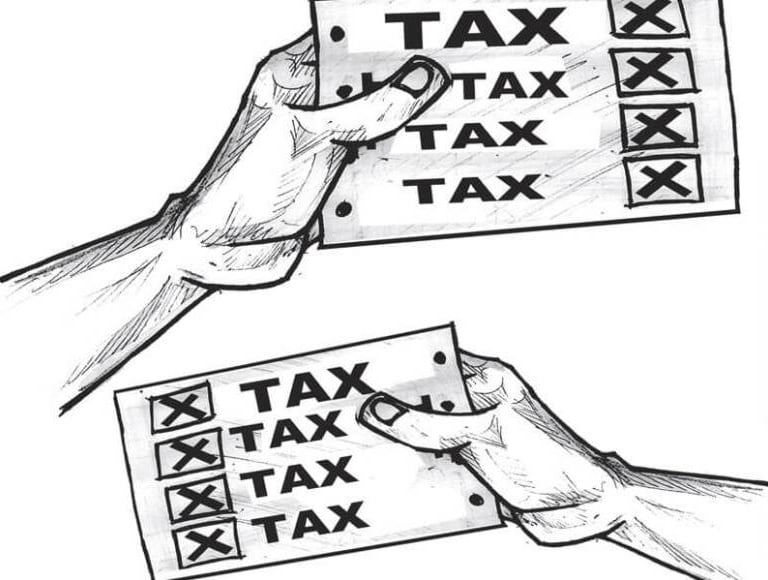

What is HMRC's Tax Defaulters List?
The HMRC Tax Defaulters List is an official government publication that discloses the details of people and businesses who have deliberately defaulted on their tax obligations. It’s designed to deter tax evasion, encourage compliance, and raise public awareness about serious tax offences.
The list is updated quarterly and includes:
Full name or business name
Address or business location
Amount of tax and penalties owed
Type of tax defaulted on
Time period when the default occurred
You will appear on the list if:
HMRC determines that the underpayment of tax was deliberate
The total tax owed (excluding interest) exceeds £25,000
You do not fully cooperate with HMRC to correct the error
Being listed can cause serious reputational damage — especially for public-facing content creators who rely on trust, sponsorships, and brand identity.
Why are Content Creators at Higher Risk?
While the traditional self-employed workforce is generally aware of their tax responsibilities, many digital content creators fall into a grey area — not because they want to evade tax, but because they often don’t realise what’s required of them.
Here’s why they’re particularly vulnerable:
1. Income Starts Small — Then Scales Fast
Many creators begin casually, earning small amounts through ads or donations. But as audiences grow, income can quickly scale into the thousands — without ever registering a business or filing a tax return.
2. Multiple and Irregular Income Streams
Creators often earn from several sources — affiliate links, digital products, brand deals, and tipping platforms. These irregular payments can make it hard to track income and properly report it.
3. Platforms Don’t Withhold Tax
Unlike traditional employment, income from platforms like OnlyFans or TikTok isn’t taxed at the source. It’s your responsibility to declare it to HMRC and pay what you owe.
4. Lack of Financial Support or Guidance
Many creators operate solo and don’t have accountants or tax advisers. This leads to missed deadlines, underreported income, and incorrect claims for expenses.
5. HMRC Is Watching
HMRC uses sophisticated data analytics and even partners with platforms and payment processors to track down digital earners. If you’re earning online, there’s a good chance they already know — or soon will.
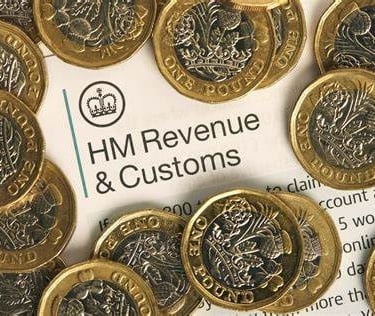
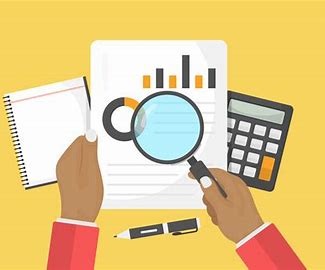
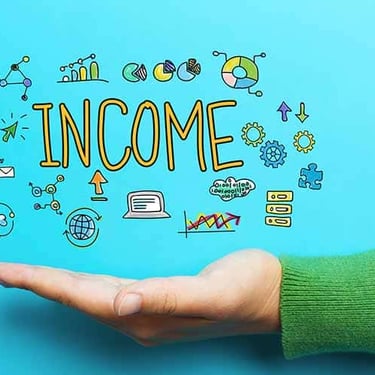
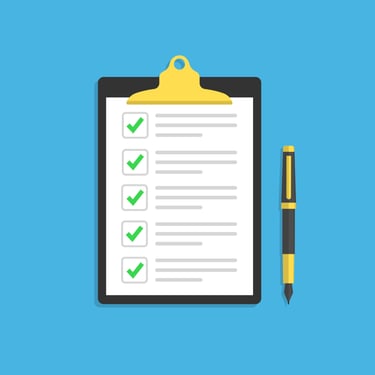
What Happens if You Don't Comply?
If HMRC finds that you have underreported income or failed to file a return — and deems it deliberate — the consequences are serious:
Large penalties, sometimes up to 100% of the unpaid tax
Backdated tax bills with interest
HMRC investigations or formal enquiries
Inclusion on the Tax Defaulters List for 12 months
For a creator trying to build a personal brand, this kind of public exposure can be highly damaging, both financially and reputationally.
How Content Creators Can Stay Complaint (and Off the List!)
The good news? Staying off the list is entirely within your control.
Here’s how to stay on the right side of HMRC:
1. Register as Self-Employed
If you’re earning over £1,000/year from content creation, you must register with HMRC and file a Self-Assessment tax return.
2. Keep Accurate Records
Track every income stream and receipt — from subscriptions and brand deals to expenses like lighting, editing software, or internet costs.
3. Submit Your Return on Time
The deadline for online Self-Assessment returns is 31 January. Late submissions result in fines, even if you don’t owe tax.
4. Set Aside Money for Tax
Aim to save 20–30% of your income throughout the year so your tax bill doesn’t catch you off guard.
5. Work With a Specialist Adviser
A tax adviser who understands the creator economy can help you stay compliant, maximise deductions, and avoid HMRC scrutiny.
Final Thoughts: Stay Safe and Stay Compliant
As HMRC tightens its grip on the digital economy, content creators are increasingly being caught in the spotlight. The Tax Defaulters List is no longer just for big companies and high-profile tax evaders — it’s now featuring solo entrepreneurs, influencers, streamers, and creators who simply didn’t realise they were doing anything wrong.
But with the right knowledge and support, you can stay compliant, avoid penalties, and protect your growing brand.
Need Help With Creator Tax?
At OnlyTax, we specialise in tax support for content creators — whether you’re earning through YouTube, Twitch, Patreon, or OnlyFans. We’ll help you stay compliant, file your returns correctly, and avoid costly HMRC mistakes. Simple advice. Confidential support. Tailored to you and your career.
Call us on 0800 0016 878 or email us at info@cre8tax.co.uk




